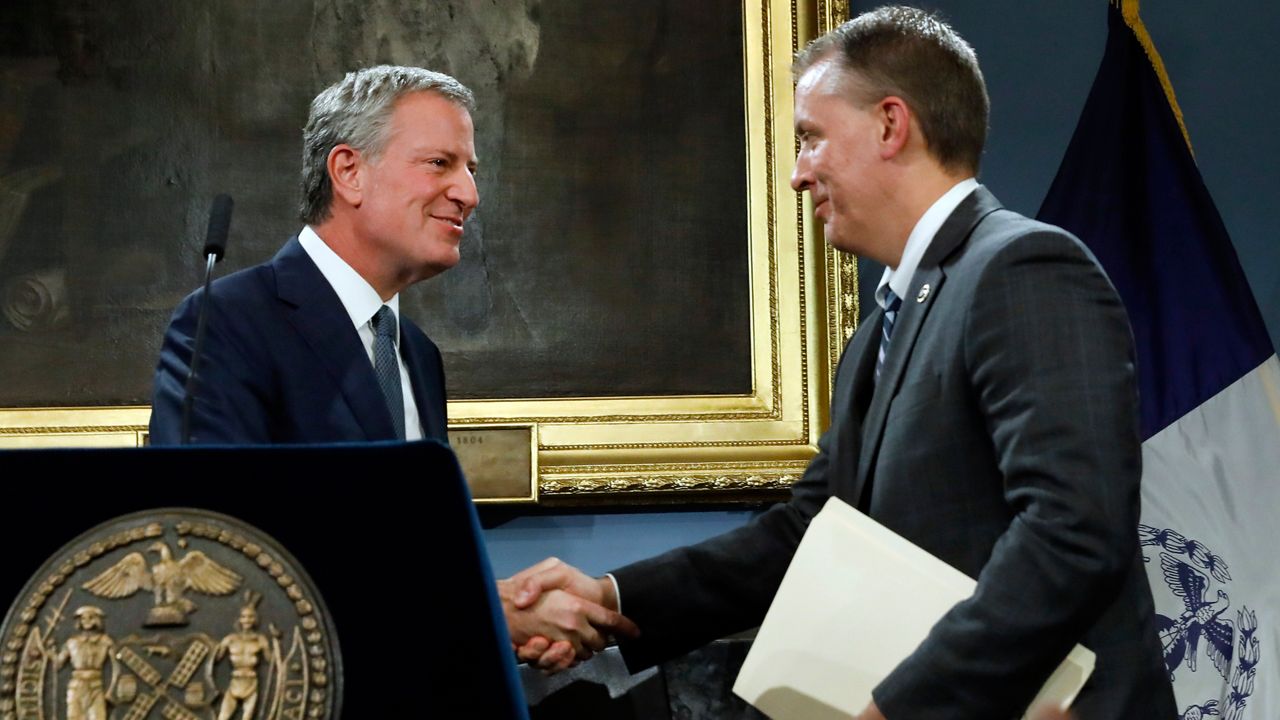Dermot Shea was publicaly sworn in Monday as New York City's police commissioner during a ceremony presided over by Mayor de Balsio at NYPD headquarters.
With friends, family and co-workers looking on — along with two of his predecessors, former Commissioners Bill Bratton and Ray Kelly — Shea replaced James O'Neill, who stepped down to take a private security job at Visa. Shea’s promising to build on O'Neill's neighborhood policing initiatives.
"We're going to build upon the framework of neighborhood policing, both to bolster existing relationships and to create new ones from one end of New York City to the other," the city’s new top cop said.
Born in Queens to two Irish immigrants, Shea joined the NYPD in 1991 and rose up the ranks. He served as commander of two Bronx precincts, including the 44th.
"The 44th is home to the Yankees, which is always a running joke because I was a diehard Mets fan," Shea joked during his speech.
Five years ago, Shea was appointed to Deputy Commissioner for Operations and last year he became Chief of Detectives. His first day as Commissioner Shea was actually Sunday, after he was sworn in during a brief private ceremony. But this ceremony came with a brass band and bag pipes. As top cop, Shea offered a special message to his family.
"I guarantee this is the last time that you will ever come to a promotion ceremony at One Police Plaza."
Shea becomes Mayor de Blasio's third police commissioner. De Blasio, who rejected the stop-and frisk policies of the previous administration, talked about strengthening police-community relations.
"We have more work to do, but we will never go back to that division,” de Blasio said. “We will never go back to that misunderstanding. We have to turn a page in this city."
Shea emphasized a stronger community bond is a better crime fighting tool.
"That closer connectivity will never mean that the NYPD is soft on crime," Shea said.
Commissioner Shea says he'll be rolling out his first initiative in the coming weeks. It will be focused on preventing young people from engaging in criminal behavior.
